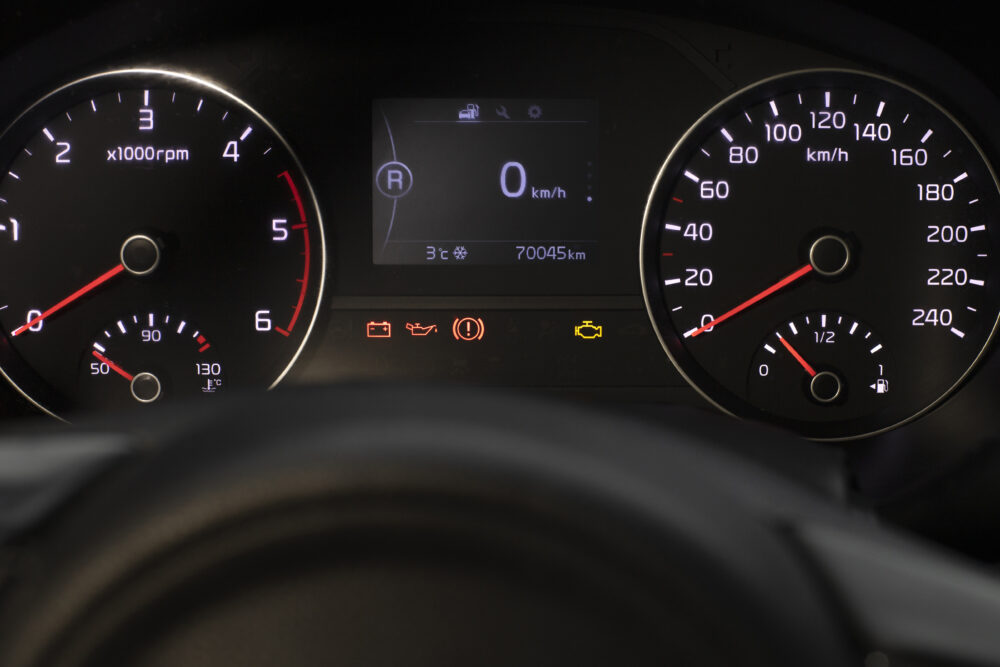Rental car companies love sneaky fees, but you don’t have to fall for them.

Renting a car abroad should be simple—you pick a vehicle, pay the fee, and hit the road. But if you’re not careful, that seemingly affordable rental can turn into a financial nightmare. Between hidden charges, confusing insurance policies, and outrageous fuel fees, travelers often end up overpaying without even realizing it. What looks like a great deal online can quickly balloon into an overpriced headache at the counter.
Knowing how to navigate the fine print can save you hundreds. Rental agencies bank on the fact that most travelers don’t read the terms closely, assume insurance is mandatory, or forget to check for added fees.
But with a little planning and a few smart strategies, you can avoid the worst of the overcharges and keep your budget intact. If you want to avoid the most common rental car traps, these tips will keep you one step ahead.
1. Book directly with the rental company instead of third-party sites.

Third-party booking sites often advertise lower rates, but they come with a catch—hidden fees, stricter cancellation policies, and the risk of the rental company not honoring the reservation. Many travelers have shown up at the counter only to be told their booking “doesn’t exist” or that they need to pay additional fees to actually get the car.
By booking directly with the rental agency, you avoid middlemen and have a clearer understanding of what’s included in the price. If something goes wrong, dealing directly with the company is much easier than trying to get help from a third-party booking service with limited customer support, according to Nerd Wallet.
2. Use a credit card that includes rental car insurance.

Rental companies push their insurance plans hard, making it sound like you have no choice but to pay extra. But many credit cards already offer rental car coverage as a perk, meaning you can skip the expensive add-ons without putting yourself at risk, as stated by Ellen Kennedy of Kiplinger.
Before your trip, check if your credit card provides rental insurance and what’s covered. Some policies include collision damage waivers (CDW), which can save you hundreds. Just make sure to decline the rental agency’s coverage at the counter, or you might accidentally override your credit card benefits.
3. Avoid renting at the airport if possible.

Airport rental locations charge premium prices thanks to convenience and additional airport fees. That seemingly small surcharge can add up quickly, making your rental significantly more expensive than one booked in the city.
If you can, take public transportation or a taxi to a non-airport rental location. The rates are usually lower, and you’ll avoid the inflated costs designed to take advantage of exhausted travelers who just want to grab a car and go, as reported by The Points Guy.
4. Always check the total price, not just the daily rate.

Rental companies love advertising rock-bottom daily rates, but the final bill is often packed with extra charges that weren’t obvious upfront. Taxes, insurance add-ons, mileage fees, and refueling charges can easily double or triple what you expected to pay.
Before booking, go through the entire reservation process and check the total price. If you don’t see a breakdown of all fees, call the rental company and ask. The more you know ahead of time, the less likely you’ll be hit with surprise costs later.
5. Decline prepaid fuel options—they’re rarely worth it.

Rental companies love to offer prepaid fuel plans, promising you’ll “save time” by not having to refill the tank before returning the car. But in reality, these plans often charge above-market rates, and most people don’t return the car with an empty tank, meaning you’re paying for gas you never used.
Instead, fill up at a local gas station before returning the vehicle. Just make sure to keep your receipt as proof in case they try to claim the tank wasn’t full.
6. Take pictures and videos of the car before driving off.

Rental agencies have been known to charge customers for damages they didn’t cause. A tiny scratch that was there when you picked up the car can suddenly become your financial responsibility when you return it.
To protect yourself, take detailed photos and videos of the car before leaving the lot. Capture the exterior, tires, windshield, and interior. If possible, have an employee acknowledge any existing damage in writing. It only takes a few minutes but can save you from a nasty surprise later.
7. Watch out for sneaky extra charges on your final bill.

Many travelers return their rental car assuming the agreed-upon price will match their final bill, only to find unexpected fees tacked on. These can include late return charges, cleaning fees, extra insurance you didn’t agree to, or even GPS rental fees for a system you never used.
Before signing off on the return, review the receipt carefully. If something looks off, ask for an explanation before leaving. Once the charge hits your credit card, getting a refund can be a hassle.
8. Be mindful of mileage restrictions.

Not all rentals include unlimited mileage. Some companies charge per mile after a certain limit, which can make your trip far more expensive than expected. This is especially important if you’re planning to drive long distances.
Always check the rental terms for mileage restrictions before booking. If there’s a limit, calculate how much you plan to drive and whether it makes sense to pay extra for an unlimited mileage option.
9. Stick to major, reputable rental companies.

Smaller, independent rental agencies might offer cheaper rates, but they often come with higher risks—questionable policies, unreliable vehicles, and a higher likelihood of hidden fees. Some even hold excessive security deposits that take weeks to be refunded.
Major companies tend to have clearer policies, better customer service, and more accountability. If a deal from a lesser-known company seems too good to be true, there’s usually a reason.
10. Don’t pay for unnecessary upgrades.

Rental agents are trained to upsell, offering bigger, “better” vehicles or extras like GPS, Wi-Fi, or premium roadside assistance. While some upgrades might be tempting, most aren’t worth the extra cost—especially when free alternatives exist.
Use your phone for navigation instead of paying for GPS. Decline unnecessary roadside assistance if your credit card or travel insurance already covers it. Stick to what you originally booked, and don’t let persuasive sales tactics convince you otherwise.
11. Read the fine print before signing anything.

It’s easy to rush through the rental agreement, especially when you’re eager to start your trip. But those papers you’re signing could include hidden charges, additional insurance, or terms that leave you responsible for things you weren’t expecting.
Take a moment to read the contract before signing. If anything looks different from what you originally booked, speak up. A few extra minutes of scrutiny can prevent major headaches later.
12. Consider renting a car for only part of your trip.

If you don’t need a car every day, don’t pay for one. Many travelers book a rental for their entire trip out of convenience, but if you’ll be in a walkable city or using public transportation, you can save by renting only for the days you actually need a vehicle.
Look at your itinerary and see if it makes sense to rent for just a few days instead of the whole trip. This way, you avoid unnecessary rental costs, parking fees, and fuel expenses.
13. Pay in the local currency, not USD.

Some rental companies offer the option to pay in your home currency at checkout, claiming it makes things easier. What they don’t mention is that their conversion rates are often terrible, adding hidden fees to your final bill.
Always choose to pay in the local currency to avoid inflated exchange rates. Your credit card will handle the conversion at a much better rate, saving you money on unnecessary currency exchange fees.
